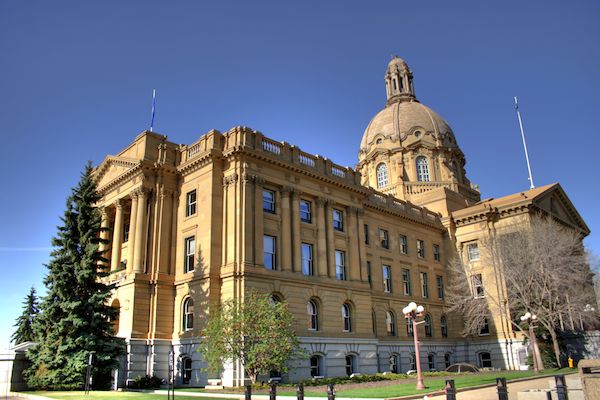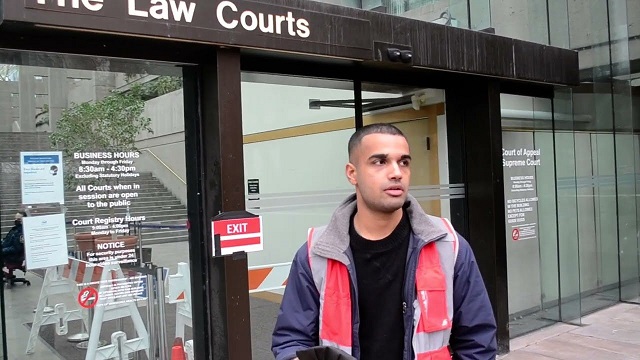Alberta
Alberta Q1 budget update a VERY nice surprise

Q1 update: Alberta’s Recovery Plan is working
The government’s economic outlook has dramatically improved over the first three months of the fiscal year, confirming that Alberta’s Recovery Plan to diversify the economy and create jobs is working.
As of July, Alberta added 73,000 jobs since the beginning of the year and has now recovered nearly 90 per cent of the jobs lost when the pandemic first took hold in the province.
Real gross domestic product (GDP) is expected to grow by 6.7 per cent in 2021, up significantly from the budget forecast of 4.8 per cent. Many economic forecasters, including the Conference Board of Canada and some of the largest Canadian banks, predict Alberta will lead all provinces in growth this year.
“After a historically challenging year, Alberta’s economy is already witnessing signs of recovery and growth. While this indicates Alberta’s Recovery Plan is working, we know there is still more to do to create jobs and restore Alberta’s place as the economic driver of the nation. We will continue to bring spending in line with that of other provinces, attract more investment and get Albertans back to work.”
Increased investment and economic activity has led to the unemployment rate falling to 8.5 per cent, the lowest since the pandemic started.
Oilsands production has risen more than eight per cent in the first half of the year with a quick rebound in bitumen output and drilling activity in June and July – exceeding 2019 levels. Non-energy investment is forecast to grow at about five per cent each year in 2021 and 2022, and will return to 2019 levels this year.
Fiscal situation
Despite these improvements in Alberta’s economy, a sizeable deficit remains, and Alberta’s current fiscal situation is still unsustainable. Alberta will pay $2.6 billion in debt servicing costs this year, which is more than it spends on all but four government departments. With no debt, these taxpayer dollars could be spent on education, health care and other public services.
While the recent increase in energy prices is encouraging, Alberta’s government is aware the situation can change rapidly and the year is far from over. There have been dramatic fluctuations over the past year and a half. Instead of relying on volatile resource revenue, government must control spending.
Alberta’s government continues to hold three fiscal anchors to guide decision-making:
- Keeping net debt below 30 per cent of GDP.
- Aligning per capita spending with comparator provinces.
- Setting a time frame for balancing the budget once the government has a clear picture of the long-term global impacts of the pandemic.
Quick facts
- The deficit for 2021-22 is forecast at $7.8 billion, $10.5 billion lower than reported in the budget.
- The revenue forecast for 2021-22 is $55 billion, $11.3 billion higher than reported in the budget.
- Expense is forecast at $62.7 billion, up $0.8 billion from the budget.
- Taxpayer-supported debt is forecast at $105.7 billion on March 31, 2022, which is $4.9 billion lower than estimated in the budget.
- The net debt-to-GDP ratio will be an estimated 19.6 per cent at the end of the fiscal year, well below the province’s goal of 30 per cent.
Alberta
Former senior financial advisor charged with embezzling millions from Red Deer area residents

News release from Alberta RCMP
Former senior financial advisor charged for misappropriating nearly $5 million from clients
On April 4, 2024, the RCMP’s Provincial Financial Crime Team charged a Calgary resident for fraud-related offences after embezzling millions of dollars from his clients while serving as a senior financial advisor.
Following a thorough investigation, the accused is alleged to have fraudulently withdrawn funds from client accounts and deposited them into bank accounts he personally controlled. A total of sixteen victims were identified in the Red Deer area and suffered a combined loss of nearly $5 million.
Marc St. Pierre, 52, a resident of Calgary, was arrested and charged with:
- Fraud over $5,000 contrary to section 380(1)(a) of the Criminal Code; and,
- Theft over $5,000 contrary to section 344(a) of the Criminal Code.
St. Pierre is scheduled to appear in Red Deer Provincial Court on May 14, 2024.
“The ability for financial advisors to leverage their position to conduct frauds and investment scams represents a significant risk to the integrity of Alberta’s financial institutions. The investigation serves as an important reminder for all banking clients to regularly check their accounts for any suspicious activity and to report it to their bank’s fraud prevention team.”
- Sgt. John Lamming, Provincial Financial Crime Team
The Provincial Financial Crime Team is a specialized unit that conducts investigations relating to multi-jurisdictional serious fraud, investments scams and corruption.
Alberta
Political parties will be part of municipal elections in Edmonton and Calgary pilot projects

Strengthening Alberta’s local elections
Alberta’s government is introducing legislation to ensure Albertans can rely on transparent, free and fair elections, and municipally-elected officials have clearer accountability measures.
In a democratic society, Albertans expect their local elections to be free and fair, and their elected officials to be held to account by clear rules that govern their local councils. The Municipal Affairs Statutes Amendment Act proposes amendments to the Local Authorities Election Act (LAEA) and the Municipal Government Act (MGA) to add greater transparency to local election processes and ensure local councils and elected officials continue to remain accountable to the citizens who elected them.
“Our government is committed to strengthening Albertans’ trust in their local governments and the democratic process that elects local leaders. The changes we are making increase transparency for Alberta voters and provide surety their votes will be counted accurately. We know how important local democracy is to Albertans, and we will work with local authorities to protect and enhance the integrity of local elections.”
Local Authorities Election Act
Albertans expect free and fair elections and that’s why it’s important we strengthen the rules that govern local elections. To strengthen public trust in local elections, Alberta’s government will eliminate the use of electronic tabulators and other automated voting machines. All Albertans should be able to trust the methods and results of local elections; requiring all ballots to be counted by hand, clarifying rules and streamlining processes for scrutineers will provide voters greater assurance in the integrity of the results.
All eligible Albertans should be able to vote in local elections without impediment. Alberta’s government will limit the barriers for eligible voters to cast a ballot by expanding the use of special ballots. Currently, special ballots can only be requested for very specific reasons, including physical disability, absence from the municipality, or for municipal election workers. By expanding the use of special ballots, the government is encouraging more voter participation.
Amendments in the Municipal Affairs Statutes Amendment Act would increase transparency in local elections by enabling political parties at the local level. Political parties would be enabled in a pilot project for Edmonton and Calgary. The act will not require candidates to join a political party in order to run for a local or municipal office, but will create the opportunity to do so.
In addition, proposed changes to the Local Authorities Election Act would allow municipalities the option to require criminal record checks for local candidates, thus increasing transparency and trust in candidates who may go on to become elected officials.
Municipal Government Act
The role of an elected official is one with tremendous responsibility and expectations. Changes proposed to the Municipal Government Act (MGA) will strengthen the accountability of locally elected officials and councils. These include requiring mandatory orientation training for councillors, allowing elected officials to recuse themselves for real or perceived conflicts of interest without third-party review and requiring a councillor’s seat to become vacant upon disqualification.
If passed, the Municipal Affairs Statutes Amendment Act will also unlock new tools to build affordable and attainable housing across Alberta. Proposed amendments under the MGA would also create more options for municipalities to accelerate housing developments in their communities. Options include:
- Exempting non-profit, subsidized affordable housing from both municipal and education property taxes;
- Requiring municipalities to offer digital participation for public hearings about planning and development, and restricting municipalities from holding extra public hearings that are not already required by legislation; and
- Enabling municipalities to offer multi-year residential property tax exemptions.
Municipal Affairs will engage municipalities and other partners over the coming months to hear perspectives and gather feedback to help develop regulations.
Quick facts
- The LAEA establishes the framework for the conduct of elections in Alberta municipalities, school divisions, irrigation districts and Metis Settlements.
- The MGA establishes the rules governing the conduct of local elected officials once on council, as well as the overall administration and operation of municipal authorities in Alberta, including any policy those authorities may wish to implement.
Related information
-

 COVID-197 hours ago
COVID-197 hours agoPfizer reportedly withheld presence of cancer-linked DNA in COVID jabs from FDA, Health Canada
-

 Censorship Industrial Complex20 hours ago
Censorship Industrial Complex20 hours agoJordan Peterson, Canadian lawyer warn of ‘totalitarian’ impact of Trudeau’s ‘Online Harms’ bill
-

 Alberta1 day ago
Alberta1 day agoAlberta rejects unconstitutional cap on plastic production
-

 Alberta1 day ago
Alberta1 day agoAlberta official reveals ‘almost all’ wildfires in province this year have been started by humans
-

 Bruce Dowbiggin1 day ago
Bruce Dowbiggin1 day agoCome For The Graduate Studies, Stay For The Revolution
-

 Business1 day ago
Business1 day agoTaxpayers criticize Trudeau and Ford for Honda deal
-

 Business1 day ago
Business1 day agoDon’t be fooled by high-speed rail
-

 Alberta1 day ago
Alberta1 day agoPolitical parties will be part of municipal elections in Edmonton and Calgary pilot projects








